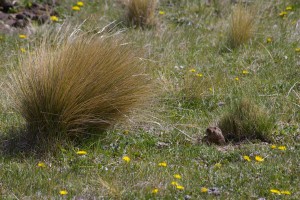For the last few years, I have been interested in understanding the genomic underpinnings of mammalian social behavior. The colonial tuco tuco (Ctenomys sociabilis) is a unique animal, and presents an amazing opportunity to study the relationship between genes and behavior. In short, tucos (see pic on left) display a flexible social system, with both social and non-social animals present in large numbers within a single population. An analysis of differences in patterns of gene expression between each of these groups may aid in our understanding of this phenomenon.
This study has involved the generation of Illumina sequence data from the hippocampi of a set of captive tucos, housed in either social or solitary conditions. A paper describing our results is currently being written, and will be submitted for peer review shortly.
In addition to this, Eileen and I are interested in understanding the ontogeny of mammalian social behavior.. This basic question is based on the observation that most/all mammals are born social (e.g. live with mom, dad, litter-mates) yet develop into mostly non-social adults.
A genome sequence for the tucos is being produced– this work in collaboration wit the Broad– and will greatly aid us in our ability to understand social behavior.

